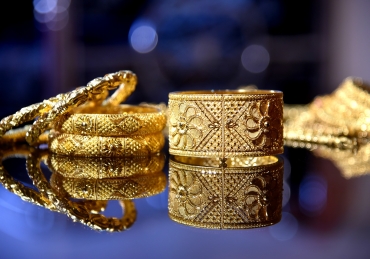Islamic Perspective on Lavish Destination Weddings
Question
What is the Islamic perspective on lavish destination weddings? A destination wedding is a wedding that is held in a location far from the home of the bride and the groom. Most often, it involves getting married at an exquisite and exclusive venue abroad such as the Bahamas or Maldives, and it is generally organised and attended by rich people. A friend recently had a destination wedding which cost him half a million pounds, which does not include the travel costs of the invitees.
بسم الله الرحمن الرحیم
Answer
Islam has emphasised on moderation and balance in spending and prohibited extravagance. A ḥadīth states, “The best marriage is the one that is most easy.” Another ḥadīth states, “The marriage which results in the most blessing is that which involves the least burden.” Thus, avoiding extravagance is not only beneficial in the hereafter, it is also beneficial in this world. Therefore, such lavish destination weddings must be avoided. The money spent on such weddings can instead be gifted to the married couple or given in charity, enabling hundreds of poor families to get married.
There is also a specific harm of such destination weddings. Those who are unable to travel to these destinations due to financial reasons will be excluded from the wedding. In this regard, a ḥadīth warns that the worst food is the food of a Walīmah to which the rich are invited, and the poor are abandoned. This is another reason to avoid such lavish destination weddings. Instead, a simpler wedding should be organised in one’s local area, which can be attended by a range of people.
قال الله تعالى: ولا تسرفوا، إنه لا يحب المسرفين۔
وعن عقبة بن عامر رفعه: خير النكاح أيسره، رواه أبو داود (٢١١٧) وصححه ابن حبان (٤٠٧٢) والعزيزي في السراج المنير (٣/١٣٣) والحاكم (٢٧٤٢) وأقره الذهبي. قال ابن رسلان في شرح سنن أبي داود (٩/٤٢١): أي: ما تيسر دون ما تعسر، كتيسير رضا الزوجين من غير مخالفة بينهما، وتيسير عقد النكاح، وحضور الشهود، ونحو ذلك من أموره، انتهى۔
وعن عائشة رفعته: إن أعظم النكاح بركة أيسره مؤونة، رواه أحمد (٢٤٥٢٩ و ٢٥١١٩) وابن أبي شيبة (١٦٣٨٤) والنسائي في الكبرى (٩٢٢٩) وصححه الحاكم (٢٧٣٢) وأقره الذهبي، وأورده البيهقي في شعب الإيمان (٦١٤٦) في باب الاقتصاد في النفقة وتحريم أكل المال الباطل. وجود العراقي في تخريج الإحياء (ص ٤٧٨) والعجلوني في كشف الخفاء (١/١٤٦) سند أحمد، ولكن قال البهوتي في كشاف القناع (٥/١٢٩): فيه ضعف، انتهى. وقال الهيثمي في مجمع الزوائد (٤/٢٥٥): وفيه ابن سخبرة يقال: اسمه عيسى بن ميمون، وهو متروك، انتهى. وقال الذهبي في الميزان (٤/٥٩٢): لا يعرف، انتهى. وقال ابن حجر في التقريب (ص ٤٤١): ضعيف، انتهى. وراجع المداوي (٢/١١) وسلسلة الأحاديث الضعيفة (٣/٢٤٣) والإرواء (٦/٣٤٨)۔
وعن أبي هريرة قال: شر الطعام طعام الوليمة، يدعى لها الأغنياء ويترك الفقراء، ومن ترك الدعوة فقد عصى الله ورسوله صلى الله عليه وسلم، رواه البخاري (٥١٧٧)۔
Allah knows best
Yusuf Shabbir
13 Muḥarram 1443 / 22 August 2021
Approved by: Mufti Shabbir Ahmed and Mufti Muhammad Tahir







